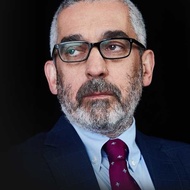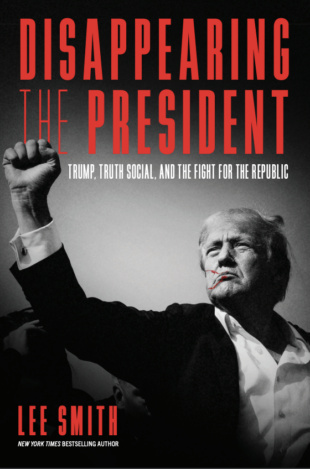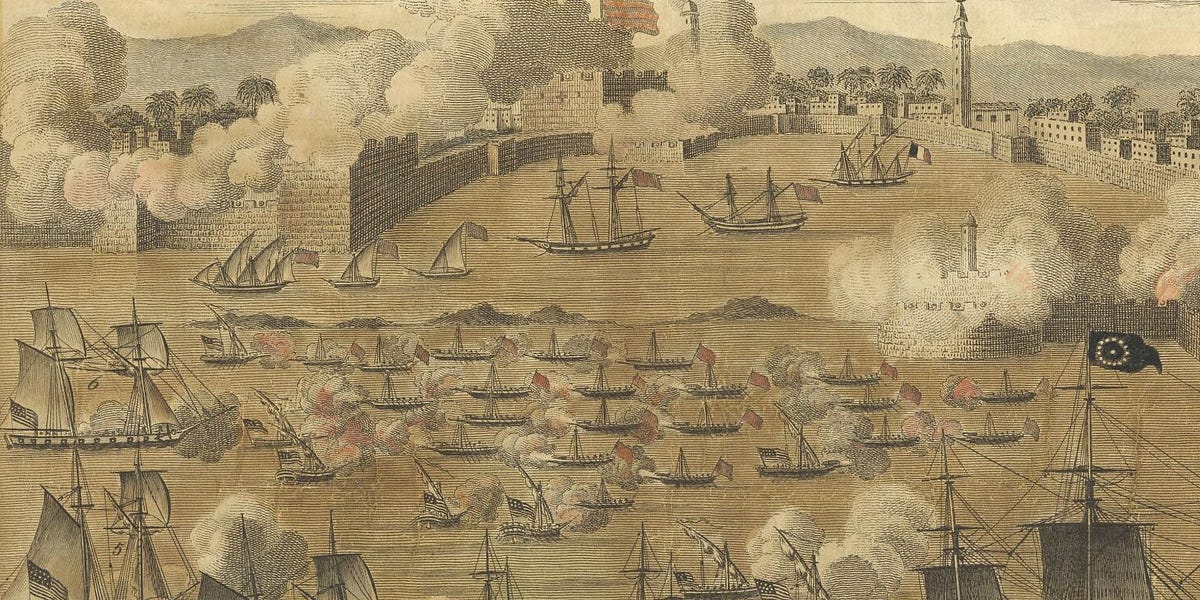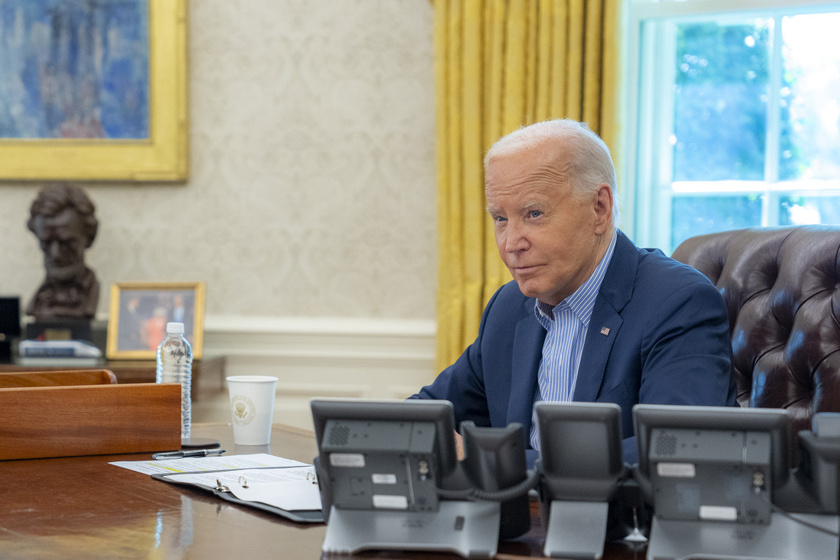
Max Morton fought in the Global War on Terror as a Marine officer and a CIA paramilitary operator. He’s written a number of terrific articles at the Federalist and American Greatness and in a recent social media post, he wrote that he knew the “disinformation” industry — i.e. the campaign of censorship targeting Americans — was coming when retired senior military and intelligence officers started talking about countering disinformation and the need to redefine individual liberties to save American democracy.
So I was keen to speak with him right away for an episode of “Over the Target” on Epoch TV. Here’s an edited version of our conversation, in which Max speaks about the rise of the disinformation industry, America’s failed wars in Iraq and Afghanistan, and how we’re not ready for conflict with China.
MM: I guess about 2016-17 I started seeing interviews with different personalities, Stanley McChrystal being one of them. He runs McChrystal Consulting Group, really a powerhouse consulting agency, and they are in the service a lot of Fortune 500 companies. And in the process, they are interviewed by NPR, and CBS and all the big-name media outlets. And it wasn't just General McChrystal, there was a lot of individuals that I had worked with, for, or adjacent to, during my time at CIA, and in these interviews, they were talking about the necessity due to Russian disinformation and foreign disinformation, for America to get a grip on the internet information that was inundating citizens.
Because after all, we have all these conspiracy theories going on. And we have all this talk about how America is failing here or doing this thing wrong here. And it's all because of some foreign governments’ disinformation program. And perhaps we need to re-address some of these civil liberties and the First Amendment in order to counter this.
And that seemed to be filtering down to some of the lower levels and podcasts with former special forces folks who run in the MilTwitter circles. And it all seemed to tie into the theme of hey, we need our own propaganda mechanism here within the United States to counter this evil misinformation that's coming from the bad guys overseas.
And it just so happens that in 2013, the Obama administration had rolled back or updated the Smith-Mundt Act, which was a law designed to prevent organizations like the State Department from being able to propagandize or disseminate American propaganda to American citizens. And the update of Smith-Mundt act basically just removed that restriction.
LS: The national security establishment is now free to propagandize the American public on social media or in the press?
MM: Yes, the Smith-Mundt Modernization Act passed in December of 2012. And what that did is it basically allowed the State Department and its NGOs to disseminate propaganda directly to Americans. The Department of Defense is bound by code to not intentionally propagandize Americans. And the intelligence community is restricted by Executive Order 12333 to not intentionally propagandize Americans. But the way, they get around this is by saying, “Hey, we're not targeting Americans on social media, we're not targeting Americans by paying for certain information to be disseminated in the regular American media. We're targeting people overseas, we're targeting foreigners.”
But let's face it, Twitter, Instagram, Facebook, all the social media, even the mainstream media outlets, everybody watches that. So really, this is like indirectly targeting Americans under the name of trying to propagandize foreigners.
LS: What was the urgency? Why did they need to reevaluate proliferating propaganda to the American public? They were so worried about Twitter, about Facebook that they had to control this?
MM: Exactly. Let's face it, the internet, social media, really started gaining steam in the mid-2000s. And I think that frightened the establishment in Washington, and they couldn't control the information flow to Americans anymore. There was too much competing information coming in.
And there's always the wacky Q-Anon conspiracy theorists and all that stuff. But I don't think that's what was really bothering them as much as it was independent journalists, influencers on social media, looking under the covers and saying, “Hey, what we're getting from CNN is not the truth, what we're getting from the Department of Defense in these press conferences, this is not the truth.” And I think some of that started with the invasion of Iraq, when we discovered that was kind of done for a big lie. And I think it shocked people. And over the years people became less trustful of what they were hearing from the government and then started seeking out these alternative information sources.
And then some of these retired generals and intelligence community officials came out and floated these trial balloons. I think that was the establishment in Washington, that was their initial foot in the door to say, “Hey, listen, we're going to fix this information problem so we can get control of the narrative again.”
LS: So before social media, their belief was, if there's difficult information that's coming out, we can control it in different ways. There's only a few news sites, only a few news channels. And the people who are writing for some of these alternative places, no one's ever going to read it. It might as well be a guy in the middle of Times Square with a with a sign around his neck, saying the world is coming to an end, no one's paying attention. But now with social media, there's more. Were they actively controlling information prior to 2016-17 when you first started to see this?
MM: I think they definitely were, not to the level that they are now, because the different information sources are just too vast. It’s almost because the information sources are so widespread and varied that you can see the attempts to control a narrative here. But if you remember, the New York Times was running those fluff pieces on the invasion of Iraq. And I forget the reporter’s name, the gal who was doing that. And it turned out that she was just being managed or handled by Department of Defense senior officials in kind of backing the lie about weapons of mass destruction in Iraq.
That's a great example of how the government and some of these agencies and departments in Washington were able to control the narrative and control the information that was going to your average normie citizens out there, and essentially getting them to support something that if they knew the truth, they wouldn't support at all.
LS: I want to get some sense of how the control of information affected people in uniform and how it affected people in the CIA.
MM: When I was overseas, fighting in the Global War on Terror, I did the Operation Enduring Freedom in Afghanistan, Enduring Freedom Philippines, and OIF, and a few other places here and there. And, you know, we're busy in the fight trying to win this thing for mom, America, and apple pie. And so we really didn't have a real good look at what was happening back home.
There were there was some cases where it just flat-out people, Marines just fighting in the streets of Ramadi, just for their teammates and to stay alive and to win the battle against al Qaeda. But in a lot of other places, particularly Afghanistan and the Philippines, and in the later stages of Iraq, when we're there trying to bring home the win, there just seemed to be this undercurrent of, hey, don't do that. Or hey, don't try so hard, or hey, this is this is really not so important. But we don't really want to say it's not really important, it was almost to the extent that there were people over there in charge who were less concerned with winning and more concerned with making sure the numbers matched up on the PowerPoint slide and there was a good news story going back to Washington.
So I think I speak for a number of my compatriots that were out there, we were left out there thinking, “Are we are we really here to win this thing? Or are we just kind of going through the motions, driving around until we get blown up by an IED? I mean, what's the deal here?”
And when it was all said and done after we withdrew from Afghanistan in kind of a humiliating manner, the truth came out, and that was it: We weren't really interested in winning, we weren't as a nation trying to win the Global War on Terror. While we're all sitting there thinking, hey, the quicker we win it, the quicker we get home, the quicker people stopped dying unnecessarily. Folks back home, were like, hey, the longer we drag this out, the more money we're all going to make. And I think that was the kind of the flavor of the disinformation from the overseas perspective.
LS: We hear how all the services are having a hard time meeting their recruitment quotas, whether it’s because the military's becoming too woke, or there's the vaccine mandates. There's the attack on “white supremacists,” meaning the communities that tend to send their sons and daughters to the armed forces. But I think what you're talking about is something vitally important that we barely talk about — it's that a lot of a lot of people serving abroad like you had a sense that there was no leadership, not even a plan for victory. Victory itself wasn't that important. And so why would young Americans among our best and brightest, great patriotic Americans, why would they give their lives for something like that?
MM: That's a great question. And I want to bring up retired General McChrystal one more time and in the vein of his actions in Afghanistan. When McChrystal went into Afghanistan, he was going in it to win it, and he brought about a lot of changes, not just within the Special Operations intelligence community, but across the board with forces in Afghanistan. And he was pilloried and shut down by folks in Washington, who were shocked that here's this general trying to win it, we've got to make sure whatever we do, we got to stop this.
And I kind of felt like they pulled the rug out from McChrystal, who had really great ideas on how to connect with Afghans. In terms of the big thing, you drive around till you hit an IED, get blown up, call for medivac, and you end up bombing a compound that the bad guys left 30 minutes ago, but McChrystal was out there trying to say, “Hey, that's not the way we're going to win this. We're going to win this person-to-person out there fighting the old-fashioned way, by integrating with Afghans and in not just being an occupying force.”
That I thought was a winning idea. That was a winning strategy. And they wipe the floor with McChrystal over that, and he ended up getting brought back over the whole BuzzFeed thing. [ed note: In a 2010 BuzzFeed profile of McChrystal, the General’s staff made fun of then-Vice President Joe Biden, which led to McChrystal’s resignation as commander in Afghanistan.]
LS: Do you think that was a real turning point? It sent a big signal across both the Special Operations community and the military as a whole that that Washington was not serious about winning in Afghanistan or Iraq?
MM: I think that was the shot that was heard around the world, in terms of SOF and conventional military. It was like, “Hey, if you make waves, if you try too hard, we're going to stop you and ruin you.” And sad to say, there was a significant sea change in leadership after that point in the various war zones we were involved in.
LS: Is that also what's led to someone like General McChrystal saying, we're going to need to reimagine civil liberties?
MM: No, I don't think this is McChrystal’s idea. I don't think this was the General saying, I think we need to do this. I think he was talking in terms of, this is what's coming down the pike. And so when I heard the interview, I didn't think oh, well, McChrystal has flipped sides. I thought of it more in the terms of, the General here in this in this interview, has just given us some insight into what's coming down the pike. And that unfolded into all the other influencers and all the retired CNN mouthpieces and MSNBC pundits. That's when I knew this propaganda disinformation kind of thing is going to become a big part of the future of America.
LS: You’ve written some terrific pieces about the GWOT, China, and our political climate, and I’m looking forward to reading more soon. What else are you up to these days?
MM: I'm working at Forward Observer. It's a private intelligence company we do a morning version of something like a presidential daily briefing for subscribers and different companies that are involved in making money and could be impacted by conflict overseas.
My specialty is conflict in the Pacific. And right now that's China and Taiwan. And I do a little bit with Ukraine and the Russia conflict situation. We have a trial free trial right now for $1 [https://forwardobserver.com/trial/] so you can get a look. It's the best five-minute intelligence review you can get without a security clearance.
LS: Great hook line. Can you give us a little bit of a briefing on China and Taiwan? Is Xi going to move on Taiwan?
MM: Well, I think we have to go back to look at what Xi Jinping was talking about last year with his global security initiative. Xi has made no bones about it that Taiwan is going to be reintegrated with the mainland. That is their greatest strategic goal right now. And the massive military buildup that has been going on in China for five to seven years is designed to enable China to achieve that goal.
Now, China would like to do this peacefully the same way they brought Hong Kong and Macau back in under control of the mainland and Chinese Communist Party. And they're working that through the Kuomintang, which is the political opposition party in Taiwan. They look at the DPP [Democratic Progressive Party], the current ruling party as being pro-independence. That's something that they're not going to tolerate. If they can't pull this off, then they'll move to more coercive measures like a blockade and a potential invasion.
But what Xi Jinping is doing right now with this global security initiative, he's using this whole idea of diminishing US influence in the region, de-dollarization, insulating the Chinese economy from potential Western sanctions, and basically protecting China because he knows that he's going to bring Taiwan under or forcefully reunify Taiwan with the mainland.
On the US side, we're in a real tough position here. We're not postured in the Pacific to be able to stop China. I mean, our munition stocks are so underfunded that we have about a week, maybe a week and a half’s worth of munitions to fight in a conflict with China. China knows this. They are not in that position — they have massive stocks of munitions that they've been building up. And they also know that that we can't regenerate our forces, any forces we lose in a conflict with China diminishes our overall national security.
Now, because we've given so much to Ukraine, and it's publicly come out that it will take five to seven, maybe ten years, just to replace what we've given to Ukraine, we're in a really prickly situation. Because Taiwan is an island in the Pacific, but what it really is to the American economy is the source of 75 per cent of the high-end semiconductor microchips that our economy relies on.
And we saw during the COVID supply chain disruptions, you got 150,000 Ford pickup trucks sitting in lots not being sold, because there's no chips for them. That kind of impact times 1000 is basically what you're going to see if China takes control of the chip foundries in Taiwan and conducts economic warfare against us by cutting off access to that. So we've got about a two- to four-year window to reindustrialize our chip-making process here in the US. China, I think, is working inside that that decision cycle. I fully expect them to force some type of reunification on Taiwan before we've matured our own chip-production facilities or capabilities here in the US.
LS: So in spite of the tough talk coming out of the White House coming out of the Pentagon, the United States is not prepared to defend Taiwan against China.
MM: Militarily, right now, we are not in in the driver's seat on this, we are not in an advantageous position. China is in that position. Economically, we're also not in an advantageous position. We have to remember that our economy and China's economy are intertwined. They're interdependent. And if we sanction China, harshly enough to hurt them, we're going to hurt our own economy, and that our economy looking at 1.1 per cent growth, which released this week, it's not doing too well. It's on the verge of going negative already. So we are stuck. We don't have the economic hammer to use against China, and we don't really have the military hammer to use against China. Militarily, we can start something, but we can't finish it. Economically, it's suicide.
LS: I'm sorry to end on bad news. But it's very good to have your clear-eyed assessment. Thanks, Max.

















